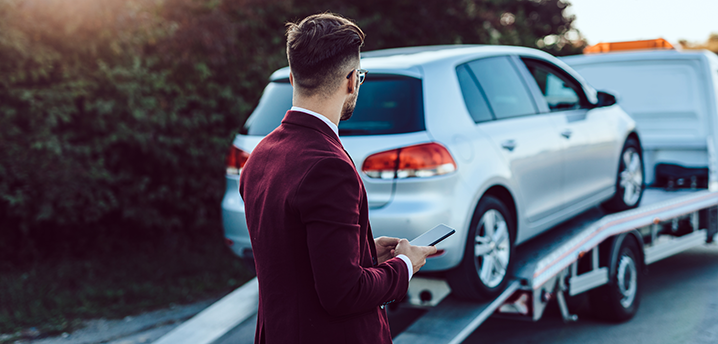Foreclosed and bank-owned RVs—also called repossessed RVs—are typically sold at a steep discount, often 20%–40% below retail value. In this guide, we’ll explain how RV foreclosures work, why they’re cheaper, and how to buy one safely.
What Is a Foreclosed or Repossessed RV?
When an RV owner fails to make payments on their loan, the lender—usually a bank, credit union, or financing company—can repossess the vehicle. These RVs are considered "foreclosed" or "bank-owned" and are then sold to recover the outstanding loan balance.
Because lenders aren't in the business of storing or selling RVs, they're often eager to sell quickly, even if it means accepting less than market value.
Where to Find Foreclosed RVs
1. RV Auctions
Many banks and finance companies list repossessed RVs on auction platforms. Some auctions are public, while others may require a dealer license.
Popular RV auction sites include:
- Copart
- GovDeals
- SalvageBid
- CrankyApe (specializes in RVs, powersports, boats)
These platforms often include detailed condition reports, photos, and bidding history. However, most vehicles are sold as-is, so inspections are critical.
2. Online Repo Marketplaces
Websites like RepoFinder and RepoDirect aggregate listings from banks, credit unions, and other lenders. You can filter by vehicle type (motorhome, fifth-wheel, camper van, etc.) and location.
Some sellers offer fixed-price listings or allow direct negotiation, rather than auction-style bidding.
3. Used RV Dealerships
Some repossessed RVs are sold directly to dealers, who recondition them and list them for resale. While this may reduce the discount, you’ll likely benefit from:
- Basic warranties
- Financing options
- Title and lien clearance
- Pre-delivery inspection
Look for listings labeled as “bank-owned,” “foreclosed,” or “repo.”
What to Know Before You Buy
✅ Check Title Status
Always request the title status—it should be clean and transferable. Avoid RVs with salvage titles unless you’re experienced with repairs.
✅ Request a History Report
Ask for a vehicle history report (via RVchecks, Carfax, or AutoCheck) to review past ownership, accidents, mileage discrepancies, and more.
✅ Inspect the RV Thoroughly
Foreclosed RVs may have been neglected. Look for:
- Water damage or leaks
- Mold and mildew
- Engine or generator issues
- Rodent damage
If you can’t inspect in person, consider hiring a mobile RV inspector or mechanic to evaluate the vehicle on your behalf.
✅ Understand Fees
Auctions may charge:
- Buyer’s premiums
- Storage or transport fees
- Document or registration fees
Always read the fine print before placing a bid or offer.
Pros and Cons of Buying a Foreclosed RV
✔ Pros
- Below-market pricing
- Good selection across classes (Class A, B, C, trailers)
- Opportunity for quick purchase
✘ Cons
- Sold as-is with no warranty
- Possible wear, neglect, or damage
- Limited time for inspection or due diligence
Final Thoughts
Buying a foreclosed RV can be a smart way to save on your next road trip or full-time travel setup—if you do your homework. These bank-owned vehicles are often priced well below retail, and with the right preparation, you can drive away with a reliable rig at a bargain.
Just be sure to verify the vehicle’s history, inspect it carefully, and understand the terms of sale before committing. With the right approach, a repossessed RV could be your ticket to affordable adventure.
Sources
Is it true that repo'd cars are sold cheaply at auction? If so, why?
by u/VisualSpring3 in askcarsales
https://www.autolandusa.net/2024/08/30/are-repossessed-vehicles-a-good-investment/





